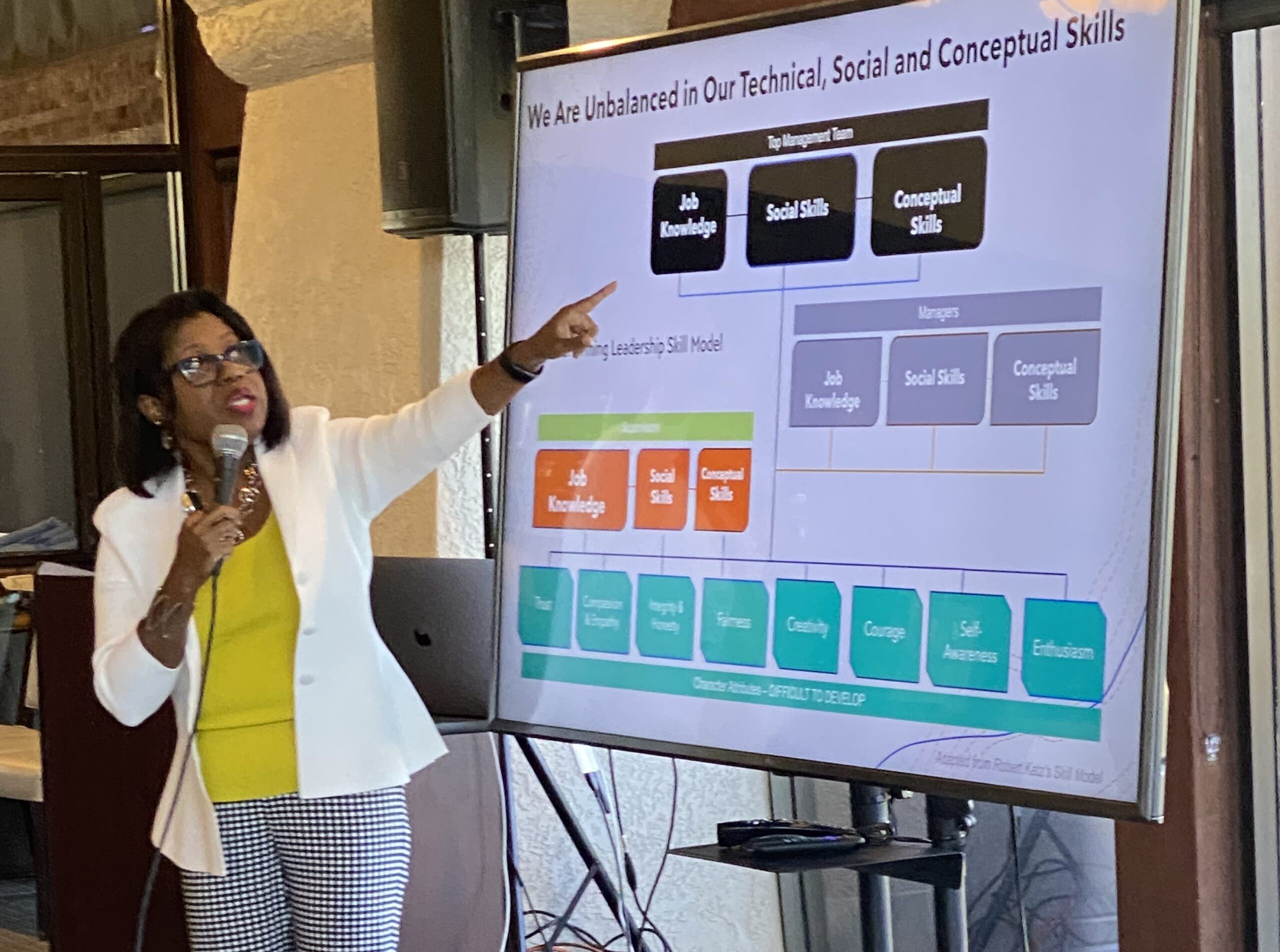Things are bound to happen. You’ll encounter roadblocks that you’ll initially believe you were never prepared to navigate, but that is only true if you allow it to be. I’m a firm believer that everything in your life prepares you for the NEXT thing. I’m not entirely caught off guard because I have a storehouse of experiences that I can pull from, even if it is from someone else’s story.
According to Harvard Business Review, “…the skills that help you climb to the top won’t suffice once you get there. One theme that ran consistently through our findings was that requirements for all the C-level jobs have shifted toward business acumen and ‘softer’ leadership skills. Technical skills are merely a starting point, the bare minimum. To thrive as a C-level executive, an individual needs to be a good communicator, a collaborator, and a strategic thinker—and we think the trend toward a general business orientation over a functional orientation will continue.”
Achieving next-level leadership requires education and experience as a foundation, but your success is dependent upon the other skills you acquire along the way, the soft skills. So, what experiences can you readily pull on when faced with difficulties?
Don’t know? Of course not; it is not a matter of know-what at this level; it is a matter of know-how. How will you show up when situations threaten your reputation as a leader? This is the final secret to success that most leaders don’t know they need. How quickly can you swerve?
Case Study:
As a young girl, this executive’s Uncle told her one day that he “never walks into the front door without knowing where the backdoor is.” Thinking this was just another crazy Uncle story, she let it go, but it never quite left her mind. She found herself thinking of ways off of a local bus, out of restaurants, out of school. It became like a game in her mind – figuring ways to escape if ever trapped. Little did she know that he lit a fire in her that helped her be prepared for just about any situation that would come her way.
That little girl was me.
As an adult, I would experience many unexpected situations, including supporting first responders during 911, successfully responding to a bomb threat as the senior-most leader that could be reached at the time of the event, and escorting staff off of the top floor of our office building when an earthquake rippled through the D.C. area, and the list goes on. But what about the less conspicuous events that rattle us daily? Here are a few I’ve had to face:
- A leader openly threatens an employee, and that employee turns to hit the leader, stopping short of hitting me when I jump in the way to prevent him from hitting her and going to jail.
-
A senior leader publicly accuses me of trying to take her job.
-
A direct report, 30 years my senior, who refused to follow my instructions.
- Peers who would lie and undermine my leadership because they felt threatened by my promotion.
- A senior leader who bragged about marginalizing me in favor of promoting herself.
- A senior leader who would verbally attack me privately behind closed doors and tell me that if I told others, she would call me a liar.
STOP: Are you sure you want executive leadership?
The truth is, though real, not all of these incidents occurred at the executive level. A few, yes, but most occurred on the road to the C-Suite. And in each situation, I had to think my way through each situation to find the back door.
Some things are caught, not taught.
This is my mantra for anyone who desires C-level opportunities. Catch as much as you can before you get there because the only roadmap for the stuff that will come careening your way is found in your ability to:
-
Be Situationally Aware – your ability to perceive what is happening “in the moment” and to effectively and appropriately make decisions that create successful outcomes. Jack Canfield gave us a great equation that I still use: E+R=O (Event + Your Response = Your Outcome). The greater the distance between the event (which you typically never control) and your response = the more successful the resulting outcome.
- Develop Emotional Intelligence – able to be aware of, harness, and express your emotions in ways that drive discerned decisions.
- Have Difficult Conversations – to see a successful end to any situation where the emotions and opinions of involved parties run strong and for which the importance of the relationship and the task or process are both critical.
If you’d like to explore your ability to swerve, be in touch. Our team is ready to help.




